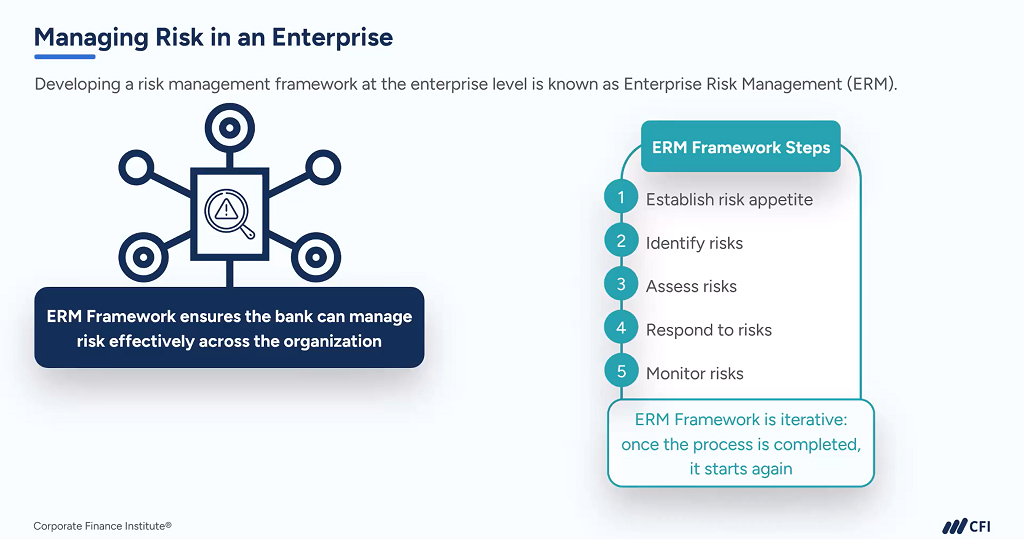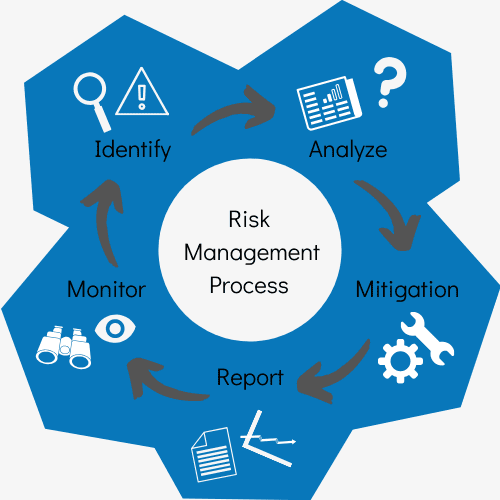Understanding the Relevance of Risk Management in Organization Success and Sustainability
In today's ever-evolving company landscape, the importance of Risk Management can not be understated. It stands as an essential pillar, reinforcing company success and sustainability amidst a sea of uncertainties. By identifying and mitigating potential risks, companies guard their resources, foster strength, and boost public trust. Just as, it paves the way for innovation and development. Let's unpack this complicated subject, checking out exactly how proactive Risk Management adds to the longevity and success of businesses.
The Concept of Risk Management in Organization
Risk Management, a basic facet of organization procedures, carries a significant weight in the success or failure of a firm. It involves determining, evaluating, and controlling threats to a company's capital and revenues. These dangers, termed as threats, might originate from a selection of resources consisting of monetary unpredictabilities, lawful responsibilities, critical Management errors, crashes, and all-natural calamities. Services utilize Risk Management treatments to alleviate the adverse results of these risks. It is an organized approach that leads the way for notified decision-making, guaranteeing economic stability and sustainability. The concept of Risk Management is not an assurance versus Risk, but instead an essential tool that promotes operational effectiveness and durability in face of changability.
Crucial element of a Durable Risk Management Method
Building a durable Risk Management technique includes several crucial elements. Identification of prospective risks is the main step, complied with by a comprehensive analysis of these dangers. After recognizing the gravity of the risks, proper actions must be prepared for Risk reduction. These actions can vary from diversification of resources to insurance policy protection. An effective Risk Management strategy also includes continuous monitoring and evaluation of the identified threats and the efficiency of the control measures. The strategy must be flexible enough to suit changes in the service setting. Furthermore, the technique must also include training of the employees to handle unforeseen scenarios. All these components, when incorporated successfully, add to a durable Risk Management method.
Exactly How Risk Management Adds To Organization Success

Situation Researches: Effective Risk Management in Practice

Future Patterns in Risk Management and Their Effects for Services
As the worldwide company landscape remains to advance, so too does the area of Risk Management. Future patterns suggest a change towards proactive as opposed to responsive strategies, with services progressively seeking to identify and alleviate threats prior to they happen. The unification of innovation, particularly AI and large data analytics, will play an essential function in this makeover. These devices can provide real-time insights, allowing swift and notified decision-making. Furthermore, environmental, social, and administration (ESG) threats are click to read more predicted to rise in prominence, mirroring an expanding societal concern for sustainability. Services that adapt to these fads and incorporate them into their Risk Management strategies will likely be far better geared up for success and sustainability in the unsure future.

Verdict
To conclude, comprehending the significance of Risk Management is crucial go right here for organization sustainability and success. Positive identification, assessment, and mitigation of prospective threats not only safeguards resources and profits, yet likewise cultivates durability. Reliable Risk Management strategies boost operational performance, consumer trust, and advancement. With real-world study and future trends, it appears that a durable method to run the risk of Management is extremely important in navigating today's complicated business environment.
Services use Risk Management procedures to reduce the negative effects of these risks. The concept of Risk Management is not a guarantee versus Risk, but rather an essential device that promotes operational effectiveness and resilience in face of changability.
Recognition of possible risks is the key action, followed by a comprehensive evaluation of these threats (importance of risk management). After comprehending the gravity of the threats, proper measures must be intended for Risk reduction. An efficient Risk Management method also involves constant tracking and review of the determined risks and the efficiency of the control steps